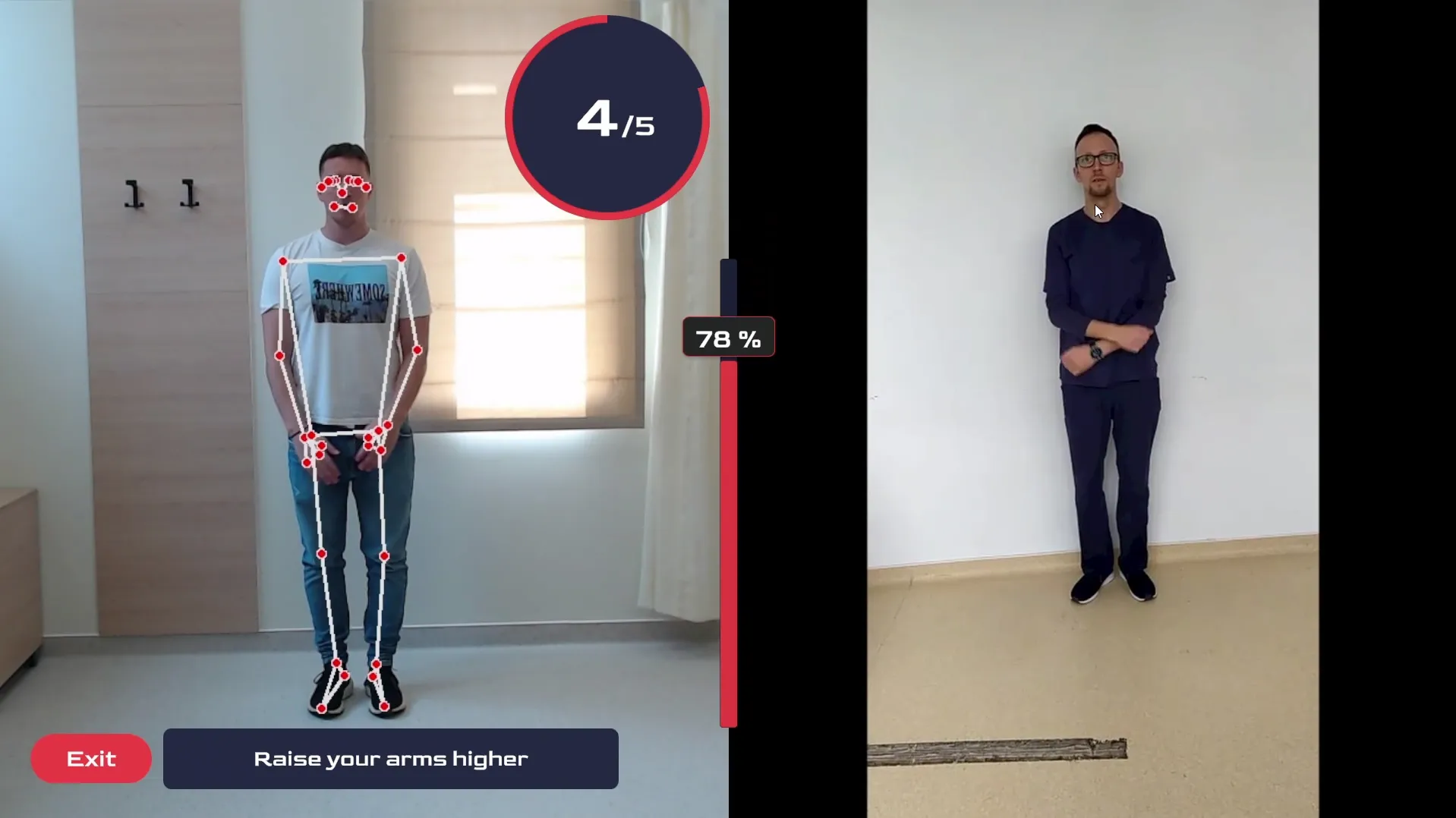AI Innovation at Széchenyi University Supports At-Home Rehabilitation
Several health technology developments are currently underway at Széchenyi István University. One of them allows patients to perform the physical exercises necessary for their rehabilitation in their own homes. The AI-based software not only assesses the accuracy of movement sequences but is also capable of providing the attending physician with a comprehensive report.
Széchenyi István University is developing a tele-rehabilitation software platform that will allow patients to perform the physical exercises necessary for their rehabilitation in front of a screen from the comfort of their own home. The application is being developed based on the idea of Dr József Tollár, Head of the Neurorehabilitation Unit at the Kaposvár hospital in cooperation with Széchenyi István University in Győr. Its core function is to monitor the patient’s movements through a camera, providing the attending physician with feedback on the quality of the tasks performed by the patient. The software operates on artificial intelligence, incorporating pose detection and pose comparison.

The telerehabilitation software developed by Széchenyi István University uses artificial intelligence to analyse the quality of the exercises performed by the patient
Dr József Tollár explained that the goal is to ensure precise and effective rehabilitation for patients needing to complete exercises at home. “After an in-hospital assessment, we design a set of exercises that patients can perform at home with approval from their physiotherapist and doctor. Monitoring remains continuous, as the device provides regular reports and analyses to therapists, allowing them to assess progress and add new exercises remotely if needed, facilitating both short- and long-term care,” he said.
He added that the system is a significant aid for patients with severe neurological, orthopaedic, stroke, Parkinson’s disease, and multiple sclerosis conditions, as well as in cardiology rehabilitation, trauma, and limb injuries. The sensory feedback aids motor function improvement, enhancing coordination, muscle strength, and overall quality of life. “It could also play a preventive role, helping older adults avoid accidents through appropriate exercises. Eventually, it may assist in paediatric rehabilitation and recovery from major abdominal surgeries,” Dr Tollár noted.
.webp)
Dr József Tollár, Head of the Neurorehabilitation Unit and the Outpatient Services at the Musculoskeletal Rehabilitation Department at Kaposvár Hospital (Photo: András Adorján)
"Telemedicine is going through a huge development nowadays, as there is an increasing demand to take rehabilitation home with the patient, and with the technological development this possibility is becoming more and more accessible" - said Dr Péter Prukner, Head of the Med & Sportech Division of the Digital Development Centre of Széchenyi István University, about the background of the development.
"The technology is already ready, now we are in the process of uploading the medical-supported exercise library, which will be able to personalise the tasks to be performed for the patient. The patient will see both themselves and the sample exercise on the screen, and will also receive immediate feedback on whether they have performed the sequence of movements correctly. The uniqueness of the development is that the AI recognises and evaluates the entire movement pattern, providing immediate feedback and correction to the user and real-time information to the clinician," he explained. He noted that the aim is to create a product that can be sold both domestically and internationally, contributing to modern medicine, faster patient recovery and more comfortable rehabilitation.
.webp)
Dr Péter Prukner, Head of the Med & Sportech Division of the Digital Development Centre of Széchenyi István University (Photo: András Adorján)
The development is being implemented through the TKP2021-EGA-21 call for proposals, entitled "Research into the application of artificial intelligence, digital imaging, occupational health solutions and materials technology developments in healthcare by combining the scientific results of Széchenyi István University and Semmelweis University".











